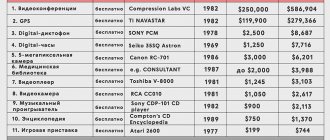Business etiquette (BE) is a collection of rules of behavior, forms of correspondence, requirements for appearance and negotiation style that are accepted in the business community and the sphere of interstate relations.
Since 1995, when the first social portal Classmates.com appeared in the United States, the concept of DE has included rules of behavior on the Internet, instant messengers and social networks.
Among other things, business etiquette may imply non-disclosure of confidential information, punctuality and accuracy in the performance of duties, observance of subordination, and goodwill in communication.
Business etiquette - what is it?
Etiquette is the rules of behavior established for effective interaction between people. Business etiquette – norms and rules of behavior of people in the business sphere. It is assumed that people connected by industrial relations should be able to interact with each other as effectively as possible in order for this to benefit the common cause. Office etiquette is a whole structure of norms affecting behavior, clothing style, and interpersonal communication. This also includes the way you organize your workspace, the ability to control yourself, and much more.
Be friendly
The ethics and culture of business communication are based on your internal and external state. In any situation, no matter how bad you feel, you should keep your face. Smile at the person and speak to him as friendly as possible. Your opponent is not to blame for family troubles, that the bus was late, or that the car didn’t start in the morning.
Minor troubles should not spoil the mood of either you or your colleagues. Thanks to your positive outlook and friendly attitude, you will be known as a kind and open person. This characteristic will allow you to gain the trust of colleagues, clients and superiors. And most importantly, by always being in a good mood, you will develop the habit of positive thinking, which will help you overcome all life's troubles.
Why do you need business etiquette?
Young leaders today wear jeans, sweatshirts, and caps. In correspondence, people use abbreviated words and put emoticons at the end of sentences. This behavior is acceptable for one specific company, but the business environment as a whole conducts communication according to certain rules. For example, colleagues, investors, and older government officials will not forgive you for informal communication. This also applies to establishing international contacts. Partners from another country simply will not work with you if your company does not comply with the rules of business communication.
The rules of business etiquette need to be known and followed in order to:
- create a positive impression of yourself and the company
- show respect for other entrepreneurs and foreign partners
- set an example for your employees.
- improve the quality of communications
- reduce the number of conflict situations
- Misunderstandings between employees have disappeared, and as a result, labor productivity has increased.
Introduction
Business etiquette is the result of a long selection of rules and forms of the most appropriate behavior that contributed to success in business relationships.
Business etiquette is the most important aspect of the professional ethics of a businessman or entrepreneur. Their knowledge is a necessary professional quality that must be acquired and constantly improved; this is the relevance of the subject of my test.
Almost 70% of transactions beneficial for businessmen did not take place because Russian businessmen do not know the rules of business communication and do not have a culture of behavior. This figure is also confirmed by international experience. Back in 1936, Dale Carnegie wrote: “A man’s success in his financial affairs depends 15 percent on his professional knowledge and 85 percent on his ability to communicate with people.”
When I took this position, I set myself the following goals:
- Study the concept of “business etiquette”;
- Consider the basic elements of business etiquette;
My main goal is to gain knowledge and, based on it, draw conclusions about “Business Etiquette and its main elements.”
Dress code
In a business environment, a person’s appearance is his calling card. It gives insight into your status, abilities and even your way of thinking. Business etiquette is not only competent speech, responsibility and punctuality. A person is greeted by his clothes. The overall impression made by the employee depends on the neatness and appropriateness of clothing.
A clean, well-fitting suit speaks of responsibility and attention to detail of its owner. While a wrinkled, unkempt shirt will alert an outside observer: if a specialist is sloppy in appearance, how good is he at business?
The principles of business etiquette require following certain rules for choosing clothing. The dress code is usually set by the company's management. However, two varieties can be distinguished:
Conservative.
Strictly adhered to by all company employees. Compliance with the standard is mandatory. For example, wearing corporate colors.
Contact.
Suitable for informal meetings. It is enough to observe the limits of decency and choose an outfit that matches the theme of the event.
Features of communication ethics in the business environment
In a business environment, it is not enough to simply be a well-mannered, cultured, polite person. Business etiquette has a number of features and differences. The rules of business etiquette require rigor and precision in execution.
The peculiarities of communication ethics in an organization are determined by the specifics of the economic sphere of people’s lives and the traditions that have developed in the cultural environment.
Fundamentals of business etiquette - general principles of culture of behavior in a corporate environment:
- Politeness
The tone of communication with colleagues, partners, and clients is always friendly and welcoming. An impeccable smile is the calling card of a successful person in business. Politeness helps to increase the profitability of an enterprise and maintain good relationships with partners and clients. Nervousness, irritability and panic are excluded by the rules of business etiquette.
- Correctness
In a corporate environment, it is not customary to be rude and inattentive even towards a dishonest partner. You must be able to control yourself, restrain your emotions and regulate your behavior through willpower.
- Tact
Business people do not forget about a sense of proportion and tact in their relationships with people. They prudently avoid awkward, negative, and unacceptable topics in conversation.
- Delicacy
Delicacy implies softness, smoothness, flexibility, and floridness of speech. It is customary to give compliments without turning into flattery and hypocrisy.
- Modesty
The ability to behave modestly characterizes a person as well-mannered and favorably emphasizes his business and personal qualities. A modest specialist and professional in his field is perceived as a balanced, harmonious, holistic, mature person.
- Mandatory
If an employee or manager has taken on a responsibility and made a promise, he must keep it. The extent to which a manager or employee of an organization is obliging can tell about his ability to analyze, predict, and assess the situation, strengths, and opportunities.
- Punctuality
In a business environment, it is considered indecent to be inaccurate in time and not be able to manage it correctly, because this is a sign that a person does not value his or other people’s time. For example, waiting more than five minutes for an important meeting is defined by the rules of business etiquette as a gross violation. Time is especially valuable in business.
Business accessories
Accessories are also important in employee attire. For men, an indispensable attribute of business style is a tie. For women, the correct selection of jewelry to match the image of a business lady is important.
List of some things that business people often use:
- dark-colored wallet with compartments for cards and business cards;
- engraved pen;
- briefcase, bag, case;
- watch;
- Business Cards;
- modern gadgets (phone, laptop)
Gestures, movements, facial expressions
To convey information, people use not only words, but also certain gestures and movements. A person who has never attached importance to his gestures and facial expressions will be surprised to learn how easily they reveal his hidden intentions and motives. A lawyer or competitor who has studied the hidden meaning of gestures and facial expressions will be able to predict the future behavior of such a person. Employees who negotiate must be able to read gestures and facial expressions, as they tell much more about a person than words.
For example:
- crossing arms and legs indicates that a person is protecting himself from colleagues/competitors nearby.
- If a person constantly knocks on the table, this indicates either impatience or indifference to the topic of conversation.
- When the interlocutor often touches his hair, he is not confident in himself or feels fear about some point in the conversation.
Where to buy a business bag made of genuine leather
The highest quality of BRIALDI is the result of many sequential operations, the first of which is the selection of material. Only 10% of the leather produced worldwide meets our requirements, and not all of it is given the honor of becoming the basis for our products. Only the highest quality raw materials, carefully selected by our specialists, are worthy of becoming a BRIALDI bag. But first, the leather is cut, doubled, leveled, glued, sanded, sanded and re-sanded and dyed.
Our policy towards employees is also aimed at creating bags of the highest quality. They are not limited in time and are not obliged to issue a certain number of products per week. We do not strive to do as much as possible - we want each bag to be the result of thoughtful and painstaking work, with special attention to detail, without which a high-end product is unthinkable.
Each BRIALDI product is a true handmade masterpiece, because we select our workers as carefully as we select the leather for our bags. All of them are true masters of their craft, for whom an excellent result of work is the only possible result of painstaking creation, and the desire for excellence is a constant motivator.
And further:
- Free shipping . We will deliver your order to any region of Russia for free
- Designer models . Our own model range and small production volume make our product unique and emphasize the sophistication of the taste of our customers.
- A stylish solution for a business person . BRIALDI leather bags will perfectly complement your business look.
- 365 days warranty . We are confident in the quality of our products and that is why we provide a full year warranty.
- Responsibility to buyers . If you prove that the leather is not genuine, we will refund the cost of the product double. In this case, the purchase will remain with you.
- Every masterpiece has its own author . Only one craftsman works on each bag, using traditional Italian technologies.
- 8 hours of work . The average time a BRIALDI manufactory master spends on creating one leather masterpiece.
- Only natural materials . All products are made from high-quality leather of elite varieties: Antique, Floater, Great Nappa, Venezia.
- Attention to detail . The masters of the private leather factory BRIALDI set themselves the task of creating the perfect leather product. That is why great attention is paid to details.
Men's business bags made of genuine leather in our catalog
Workplace is ok
At work, you need to create an environment that will influence work productivity.
How to get your workplace in order?
- Get rid of unnecessary and unnecessary things. Disassemble all bedside tables and cabinets. Sort out the documentation, decide which papers are high time to throw away. Divide documents into important and unimportant. Place in folders and label with sticky notes.
- Sort out what's left. The entire office should be in one place, documents, certificates, diplomas in another, wipes for the monitor, hand gel in a third.
- Leave only necessary things on the table. Keep them to a minimum. For the rest, use boxes and folders. Leave space for work and inspiration.
- Minimize eating and snacking in the work area.
Laws and rules of ethics
The rules of business etiquette must be observed, since their violation can lead to the severance of partnerships, loss of reputation, sales markets and other negative consequences.
All business people comply with job descriptions, act in accordance with the organization's charter and comply with oral and written rules of corporate etiquette.
The rules of business etiquette provide for the following working points:
- Dress code
The clothing style is classic, discreet, neat. A strict suit, acceptable colors in clothes (usually black, gray, white), neat hairstyle. Each organization can prescribe its own dress code rules, but they are always within the framework of appearance features generally recognized in business.
- Attitude to work
A conscientious, responsible, decent attitude to work is perhaps the main sign of professionalism. At work, it is not customary to solve personal matters, visit social networks, talk a lot with colleagues on unrelated matters, or take frequent tea breaks.
- Time management
Nobody likes unpunctual people. And in business, every minute is precious and scheduled, so the value of time cannot be exaggerated. The rules are: time is money; every professional and specialist must master the basics of time management; you need to plan your working day.
- Written speech
An educated and cultured person always writes correctly. There are rules and canons for preparing business letters and other documentation.
- Oral speech
Business communication is structured, without lyrical digressions, introductory words, filler words, or obscene words. Business etiquette does not allow distortion of the voice, antics, parody of someone, or empty chatter.
- Telephone etiquette
Business etiquette involves rules for negotiations and conversations on the phone. They prepare for a telephone conversation in advance: they determine the time when it is more convenient for the interlocutor to talk, prepare the questions that need to be asked, and note the main points that need to be discussed.
- Chatting in Internet
A new word has been coined for Internet communication etiquette – netiquette. It is no longer possible to imagine civilized life without the Internet. The modern employee uses email, the company website, internal chat, and so on.
The rules for writing business emails partially coincide with the rules for writing paper letters. It is customary to sign an e-mail not only with the name of the author, but also to leave contact information (name of organization, zip code, telephone numbers, Skype nickname, company website address, work schedule).
- Desktop
According to the rules of etiquette, there should be order on the desktop. Even stacks of papers, books, folders - everything is in its place. The employer's and employee's desks will tell you how they work. The unspoken rule says: the more order there is on your desktop, the more order you have in your head.
- trade secret
Confidential information and trade secrets are not subject to disclosure.
- Respect
In behavior and communication, a cultured person expresses respect for his interlocutor, partner, opponent, and client. Business etiquette obliges you to be an attentive listener, respect other people’s opinions, help a colleague with work, and so on.
- Business negotiations, meetings, events
The ability to competently conduct negotiations and effectively complete them is a special art. Business etiquette says: negotiations and meetings should have a purpose, a plan, a specific time frame and a location that is convenient for both parties.
Business events, such as meeting business partners at a train station or airport, introducing members of a delegation, presenting flowers and other actions, are carried out according to protocol. For example, there are certain seating rules at the negotiating table.
- Subordination
The “superior-subordinate” relationship requires smooth communication while maintaining a certain distance. An ethical boss makes comments to a subordinate only one-on-one. Gives oral and written assignments specifically, concisely, and clearly. An ethical subordinate certainly follows the orders of the manager, but can express his point of view, give useful advice, and make a proposal.
- Relationships in the team
The microclimate in a team is of great importance and affects the productivity and performance of employees. Business etiquette presupposes friendly, respectful relationships, assistance and support in solving assigned tasks. Taboos: gossip, intrigue, intrigues, the Cold War, as well as office romances (personal life is expected outside of work and not in the workplace).
- Business gestures
Gestures should be energetic, but not excessive or sweeping; gait is smooth, swift, walking speed is average (not running or walking); straight posture; confident look.
The only touch allowed in a business environment is a handshake. At the same time, there are also rules here. When shaking hands, it is not customary for the hand to be limp, wet, or cold. The interlocutor’s hand should not be squeezed or shaken for a long time. There is quite a bit of psychological literature on body language that looks at business gestures and how they can be interpreted.
To be ethical in a professional environment, you must comply with all laws and adhere to the rules of etiquette.
Ethics and business etiquette are studied in general educational institutions, by attending relevant courses, trainings, seminars, and are mastered independently by a business person.
Etiquette and protocol of business communication
Negotiation etiquette includes the concept of politeness, tactfulness, correctness, decency, as well as the ability to express one’s opinion, taking into account the individual qualities of other people. This teaches the ability to maintain personal dignity and respect others even in conflict situations.
Business conversation etiquette prohibits:
- Enter into negotiations on the fly;
- Start a conversation with phrases of little content;
- Show by all appearances that the interlocutor has come at the wrong time;
- At the same time, talk and do other things (talk on the phone, look through papers).
Knowledge of business etiquette in professional activities creates a favorable emotional background, which makes business not only successful, but also humane.
Business protocol is a set of rules that establishes greetings, the order of meetings, negotiations, business correspondence, etc. Each country has its own rules of business protocol. However, the protocol of any country includes concepts such as respect, honesty, openness, brevity and accuracy.
Popular message topics
- Japan
Japan is a group of 6,800 islands (the Japanese Archipelago) located in eastern Asia. Despite its relatively small size (377,000 km²), this country ranks 10th in the world in terms of population. - Cities of the Golden Ring of Russia
The Golden Ring of Russia is a Russian tourism project that united ancient Russian cities into the Union of the Golden Ring. The name of this “family” was given by art critic Yuri Bychkov 50 years ago. There are cities of the small ring - the main list of cities, - Rocks Rocks
are a very interesting subject for research and study. These are the substances that make up the earth's crust. Rocks are composed primarily of minerals or rock fragments.
Rules for holding meetings and negotiations
The etiquette of negotiations even determines the way of arranging the meeting space. Even the shape of the tables is important. For example, square tables are suitable for short conversations. Rectangular - for a long interview.
The etiquette of business receptions assigns the place of honor to the end of the table. Especially if it is located opposite the door (or window, if the entrance is from the side of the table). The window opening must be covered with curtains or blinds.
The etiquette of business negotiations requires a calm, balanced conversation. Partners should communicate without aggression, listening carefully to each other and without interrupting. Tea and coffee are offered 5 minutes after the start. Repeat again after another hour. Business meeting etiquette must be strictly observed. This will help create a positive image of your business partner.
The art of negotiation is defined by:
- Thorough knowledge of the topic. No question should leave you stumped.
- Control over your emotions, facial expressions and gestures.
- Personal qualities of a negotiator.
- The opportunity to defend the demands and proposals of your company.
- Careful preparation and appropriate improvisation. Knowing how to negotiate correctly, you can achieve great success.
How to seat guests at formal receptions
- The hostess sits down at the table first and invites the guests to take their seats.
- At the table, men alternate with women.
- Spouses or employees of the same company do not sit next to each other.
- The men help the ladies next to them sit down, then sit down themselves.
- The most honorable place at a men's reception is to the right of the owner. If the reception is attended by women, then to the right of the hostess. If the guest of honor is invited with his wife, then the guest sits to the left of the host of the reception, and the guest to the right of the hostess - of course, if the hostess and host are sitting next to each other.
- At the end of the meal, the hostess leaves the table first, giving a signal to the rest of the guests.
Business correspondence
Each employee who sends a message or letter on behalf of the company should know the following rules:
- The letter is sent on the company's official letterhead.
- The letter must be written without errors or typos.
- The style of the letter should be strict and businesslike, since the text of the letter can be read out publicly;
- The subject of the message must correspond to the content;
- Business etiquette requires a timely response to incoming correspondence.
Don't neglect your health and that of others
Bosses must take care of their subordinates. If a project is on deadline, you can ask employees to work overtime, but they should be given an extra day off for this overtime. If overtime happens too often, think about how correctly the work process is set up. Perhaps your trusted people who oversee this or that project are not coping with the task assigned to them.
In the ethics of professional and business communication, there are invisible boundaries that separate each person. This area is called personal space. It should not be violated. Each person should take care not to overstep the boundaries of a colleague’s personal space and not bring his delicate spiritual nature to tears. Such cases are not uncommon. In any team you can meet energy vampires who do nothing but spoil the mood of those around them.
Telephone etiquette
Telephone etiquette has its own set of rules:
- The initiator of the conversation greets and introduces himself first;
- If you know the interlocutor personally, throw in a few phrases regarding the general state of affairs;
- Before the conversation, you need to adjust your voice and prepare a question or text of your appeal.
- During a conversation, unnecessary noise that will prevent the person on the other end of the line from understanding and hearing you is unacceptable.
- Communication is built according to a certain pattern. After the introduction and greeting comes the purpose of the address.
- At the beginning of the conversation, you need to find out whether the interlocutor can give you time or whether it would be better to call back. If the person is short on time, briefly state the purpose of the call.
- At the end of the call, you need to politely say goodbye and also thank you for your attention.
- The approximate time of a business call is no more than 3 minutes. If you cannot meet this interval, it is wiser to schedule a personal meeting.
Good manners and knowledge of business etiquette can set your company apart from its competitors. If you follow the rules of speech etiquette in business communication, follow the rules of business correspondence and telephone etiquette, you can easily win the attention of investors and the trust of business partners.
Basic Rules
Business etiquette can be applied to telephone communications, personal meetings, and other situations. The main ones are as follows.
Telephone communication
There are rules that should be followed before starting a conversation, during it and at the end.
Telephone etiquette
Before making a call you need to:
- prepare a list of questions in advance;
- disconnect if the subscriber does not answer after six rings;
- if the secretary answered, then clarify with whom you need to talk correctly;
- do not call before nine in the morning or evening;
- be sure to say hello;
During the conversation, you also need to prepare everything you need; you should have a notepad, pen and other documents that may be needed on hand. Turn on the speakerphone only after asking your interlocutor about it. Active listening is required, not doing other things, and preferably communicating in a quiet and calm place.
At the end of the conversation, you should briefly recount everything you need; if you need to go into more detail, it is better to translate this into a personal meeting or conversation through special applications. If the connection is lost, it is recommended to call back if it was a conversation with a client.
If not, then you need to wait for the caller to call back. It would be a good idea to send a letter at the end of the conversation confirming the agreements received during the conversation. Say goodbye politely.
Important! According to statistics, most people just hang up without saying goodbye, it's rude.
How to behave when talking
Business correspondence
As in the case of a telephone conversation, it is important to convey the main idea briefly and clearly, and also adhere to the following points:
- discuss only one topic in one letter;
- be sure to indicate the subject of the letter in a special form; without this, it may be unread;
- the subject line should contain and indicate the essence of the letter, it should be short;
- long letters are quite difficult to read, so you should not write them;
- do not send sensitive data because it is easy to access;
- the text must be divided into paragraphs, listed in a list, spelling and punctuation must be observed;
- particularly important points can be highlighted in bold or italics;
- It is necessary to respond to a received letter quickly; if it takes a long time to respond, it is recommended to warn the person about this;
- It is recommended to always address the interlocutor by name;
- at the end of the text you need to provide contact information or insert a template.
Negotiations and meetings
Today, most discussions have moved to digital format. However, previously all issues were resolved only in personal meetings.
Negotiation
Many rules and norms of behavior were invented, entire books were written. There are seven basic rules that must be followed during personal contact:
- to conduct negotiations, it is necessary to notify the interlocutor no later than two weeks before the meeting;
- it is recommended to start negotiations in the morning, around ten o’clock;
- be sure to introduce all participants, if they are not familiar, before the start of the event;
- all discussions must be started by representatives of the inviting party;
- It is unacceptable to enter into arguments, discussions in a raised voice, or interrupt the speaker;
- The duration should be no more than two hours. If the specified time is not enough, it is recommended to take a short break for coffee or tea;
- Be sure to turn off mobile phones.
Regardless of current trends and rules, maintaining business-like etiquette during negotiations will help anyone achieve career advancement faster. It is recommended to know the basic rules with which you can understand how to act in certain situations and not look incorrect.
Online communication
Today it is one of the most popular methods of communication, both in business circles and personal ones. Almost all discussions are now held on social networks and special messengers. This often makes communication easier for all parties. There is a rule that you can communicate freely and without formalities on the global network. However, it is better to communicate this way with friends or family, but not with clients or partners.
Online communication norms
In business circles, when communicating via the Internet, it is customary to follow the following rules:
- dispense with familiarity. You must address the interlocutor by name, writing it correctly, even if his nickname or name on a social network looks like “Musya” or “Volodka”;
- It is better not to send a large number of emoticons;
- words written in capital letters are considered a shout on the global network, so you can run into a negative reaction from your interlocutor. It's better not to write like that;
- Before communicating with a stranger, it is recommended to study his personal data, what music he likes to listen to, what things he publishes on the page, so you can understand him better.
Work etiquette
Many companies set standards for etiquette and behavior separately. There may also be a dress code. If something specific is not specified, then it is better to observe all the specified things yourself.
You must always communicate correctly with colleagues, only speak on a first-name basis with employees you know well, and address managers by their first and patronymic names. Otherwise, the same rules apply as in society.











